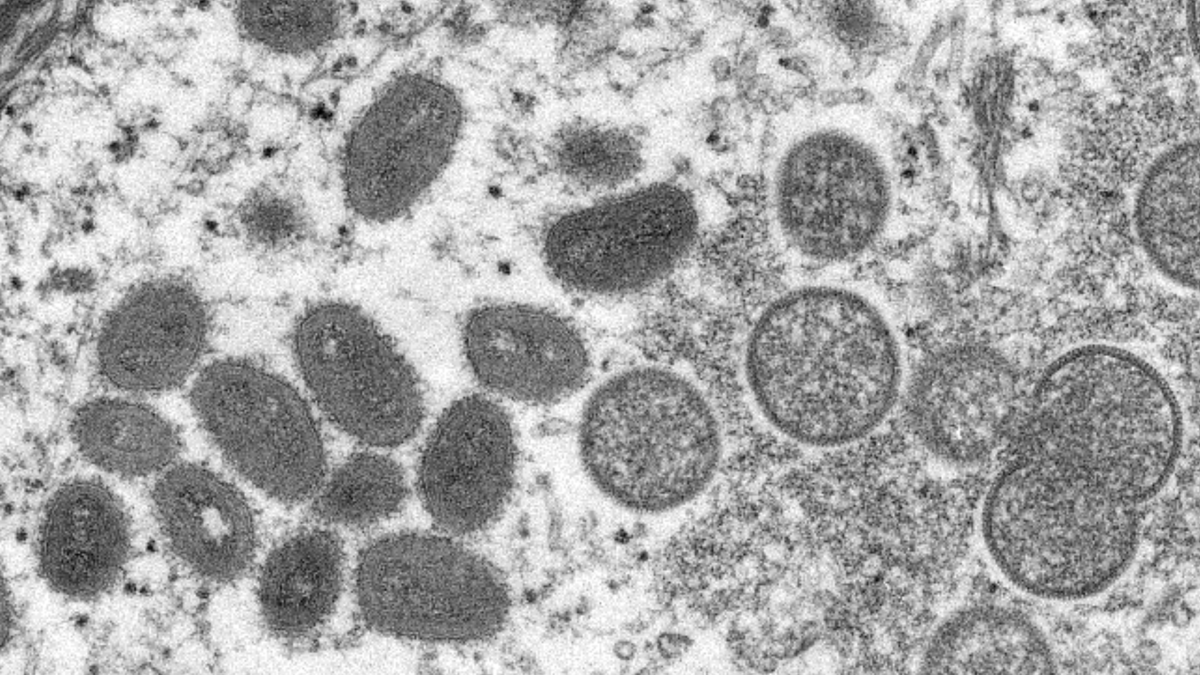Start your day with LAist
Sign up for the Morning Brief, delivered weekdays.
As monkeypox testing capacity expands, officials are urging health providers to test any patients with an unusual rash.
The Centers for Disease Control and Prevention is working with five commercial labs to expand testing capacity. The U.S. Dept. of Health and Human Services said Friday that testing capacity has increased from 6,000 to 70,000 tests per week.
That means most health providers can now order commercial monkeypox tests, and faster turnaround time will mean patients should receive test results in a few days.
What It Is And How It Spreads
Monkeypox is caused by a member of the same family of viruses as smallpox. Although this version of monkeypox isn’t usually deadly, it can cause a nasty illness and a painful rash that lasts for several weeks. Typically, people have a fever, muscle aches and then a rash on their face, mouth, hands and possibly genitals.
The virus spreads through close contact — including direct physical contact with lesions as well as “respiratory secretions” shared through face-to-face interaction, according to the Los Angeles County Dept. of Public Health. Touching objects contaminated by monkeypox lesions or fluids may also risk the spread.
To get an accurate test result, health providers need to collect live cells, says Timothy Brewer, professor of medicine and epidemiology at UCLA.
“Monkeypox actually goes through a series of stages just like chickenpox. It starts out as a little bump, the medical term for that is papule. It then progresses to form a blister, then it forms a pustule, which is just a blister that’s got the white milky liquid, and then it sort of crusts and scabs and and and heals. You’re infectious throughout that whole process,” Brewer said.
How They Test
To get live cells, Brewer says clinicians need to collect at least two different samples from multiple locations on the patient’s body. The key, he says, is to sample legions “at different stages of development,” and not just concentrating on the early bumps.
“So if you have some papules, and some blisters and some pustules, you want to make sure that you’re, you’re getting samples of each,” he said.
The swabs should then be put in a sterile container and refrigerated.
Brewer says some cases may be missed if tests aren’t conducted correctly.
The lesions typically concentrate on the arms and legs, but in the latest outbreak, they’re showing up more frequently on the genital and perianal area, which Brewer says has raised some concerns monkeypox lesions may be confused with sexually transmitted disease.
Monkeypox In L.A. County
There are more than 100 cases of monkeypox in L.A. County and more than 1,800 cases detected throughout most of the U.S. Cases are currently concentrated among men who have sex with men.
“I think what we need to be doing is we need to be making sure that our sexually transmitted disease clinics and our populations that are engaging in and high-risk sexual activities are made aware of this disease and to be on the lookout for it because it can be very mild so people can have it and not realize that they have it. And that probably is facilitating the transmission,” Brewer said.
Who Can Get Vaccinated Now
There is a monkeypox vaccine, but due to the limited supply only those at higher risk can receive it in L.A. County. Eligible people include:
People with a known exposure to a confirmed monkeypox case.Persons who attended an event where there was high risk of exposure to a confirmed monkeypox case,High-risk individuals identified in the LA County jail, and,Gay and bisexual men and transgender individuals who have had a recent diagnosis of rectal gonorrhea or early syphilis
Eligible people can make an appointment or go to a walk-up site to receive the vaccinations. Residents who don’t have a provider or health insurance should call 2-1-1 or visit a public health clinic.
What questions do you have about the pandemic and health care?
Jackie Fortiér helps Southern Californians understand the pandemic by identifying what’s working and what’s not in our health response.
Ask a Question
Discovered on: 2022-07-18 21:20:42
Source: Getting Tested For Monkeypox? Here’s What Your Clinician Should Do



